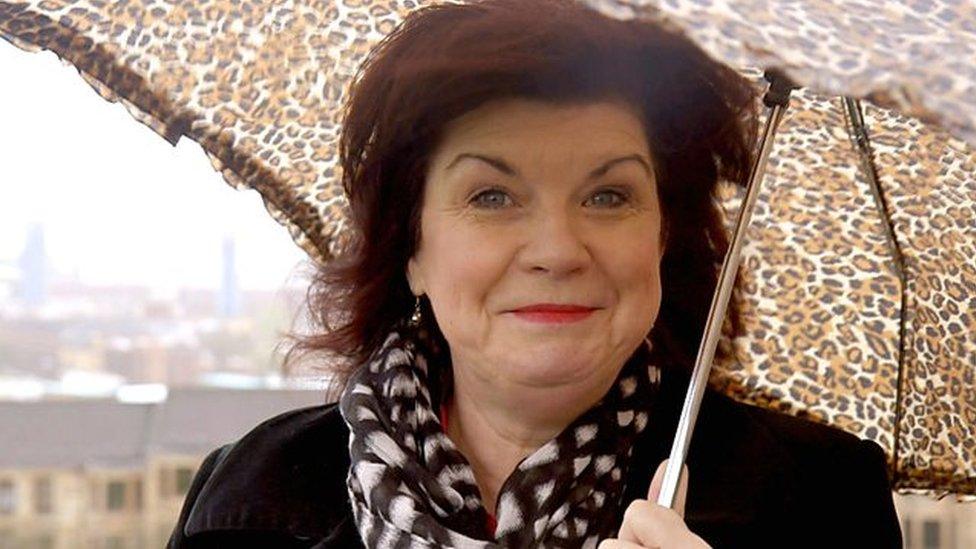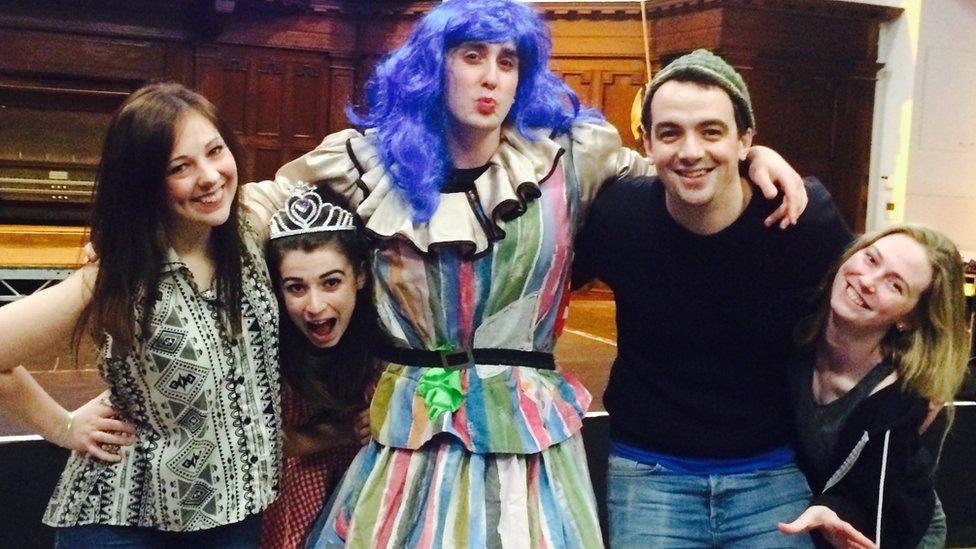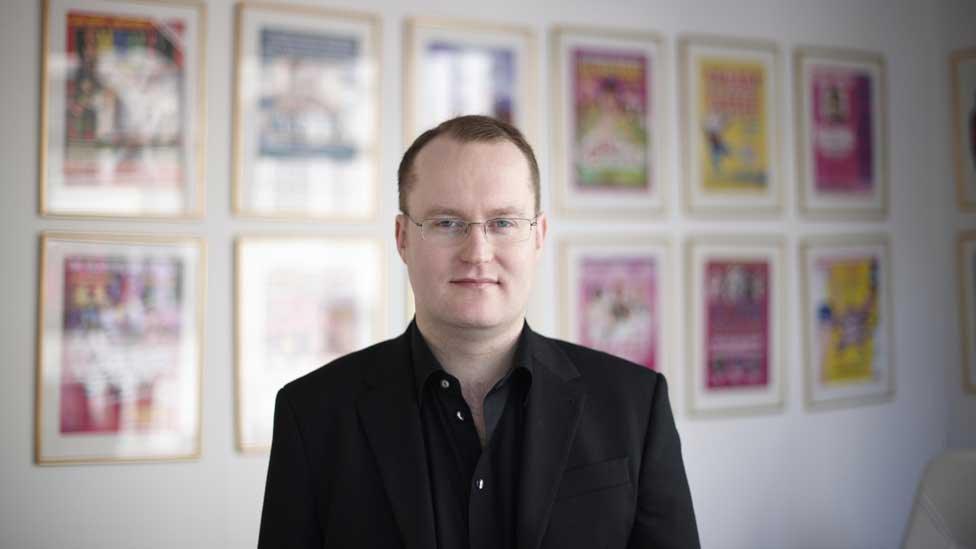Pantomime - a true theatrical survivor
- Published

The cast of Peter Pan, which is playing in Aberdeen
From fairies to princesses, heroes, villains and a bit of seasonal cross-dressing, it is an art form which celebrates tradition but has constantly reinvented itself to stay commercial and relevant. Pantomime represents a welcome injection of cash for many theatres and it has proved to be a real theatrical survivor.
"For most kids and most people who eventually become theatregoers, a pantomime is their first experience of being there," says actress Elaine C Smith.
"So you have to make it as bright and as funny and as magical as you possibly can."
Smith has a long pantomime pedigree and this year is appearing as the Magical Mermaid in Peter Pan in Aberdeen.

Elaine C Smith has a long pantomime pedigree
What brings her back to doing panto is that she is good at it, she says.
Audiences come in their droves and it is a magical experience, one which also offers employment opportunities for actors and dancers.
And then there is the ripple effect, with restaurants and other businesses getting busier, Smith says.
"It's the one time of the year when almost every theatre in Scotland is full," she says.
As a popular art form it has a very special place in Scotland's history, building on a rich tradition of variety.
The Pantomime in Scotland project, external, which was based at the University of Glasgow, joined with the Fraser of Allander Institute at Strathclyde University to survey the 2008-2009 season.
What they found was healthy. Box office income from 21 professional pantomimes, for instance, was £5.7m.

The cast of Rapunzel includes Elaine C Smith's daughter Hannah Elizabeth Morton (2nd from left)
In a rehearsal space in Glasgow's east end, a small group of actors is hard at work on Rapunzel.
Kapow Theatre Scotland will be taking the pantomime to various venues including Skye. A second pantomime will be at Strathpeffer.
The company was only set up about 18 months ago, after four friends decided they wanted to put on a show. At least part of the motivation was to provide some work for themselves and others.
"It's such a tough industry," says Emma McDougall, one of the company managers.
She says: "You know there are thousands of actors out there but very little work, especially in Scotland."
The company have taken on five extra actors for this year's pantomimes.
In proof that the Scottish theatre world is a small one, while chatting, it emerges that one of the actors in Rapunzel this year, Hannah Elizabeth Morton, has a bit of a pantomime story herself - her mum just happens to be Elaine C Smith.
"A nice coincidence," she says of the fact that they are both in pantomime this year.
"My mum always did the Kings panto with Gerard Kelly and I used to come and sit at the side of the stage, next to the stage management and I knew all the words, so I say it's a coincidence, but maybe it was fate."
The company has been rehearsing for some time now, fitting in with everyone's other commitments.
"I'd say the hours are full-time but the pay's not quite full-time," says Daniel Cullen, another of the company managers. They hope to expand more in the future.
Special effects
At the other end of the scale in terms of size is Qdos pantomimes, which bills itself as the world's largest pantomime producer. This year they have 24 shows across the UK from Aberdeen to Plymouth.
The business has three main sites: a head production office in London, a vast wardrobe store in Scarborough and a scenery store full of special effects, as well as individual items like Cinderella's coach, beanstalks and giants.
This time of year is the culmination of the work which has been taking place throughout the year and it all happens in about a 10-week window.
Producing 24 shows at the same time is a big logistical effort.

"Imagine producing 24 musicals at once, imagine an opera company having 24 operas on at exactly the same time," says Michael Harrison, managing director of Qdos pantomimes.
"People can be very snobby about pantomime, but the technical element and the creative element that goes into producing these shows is kind of unlike anything else that we do in the entertainment industry."
The company's productions move from location to location, although the final shows evolve and adapt depending on where they are being staged. But the fact that sets and costumes will have a long life onstage allows the company to recoup its investment.
Michael Harrison says he did not want to see pantomimes left behind.
Huge expense
"Long gone are the days when pantomime is a tatty backcloth, a funny little band and people coming on doing sketch comedy," he says.
"So we tried to change the way pantomime was moving forward by really upping the ante in terms of scenery and special effects.
"I think these things are really important but they come obviously with a huge expense."
In common with many theatres at this time of year the Tron in Glasgow is busy.
Its pantomime is Sleeping Betty, but unlike many theatres, pantomime is not a big money-spinner for them, although it is an important part of what they offer across the year.
The pantomime is generally the Tron's most expensive show to produce because people expect a bit of glitz and glamour.
"You can't short change on a panto," explains the Tron Theatre artistic director Andy Arnold.
A few years ago they even had to put on a public appeal to help safeguard it and although the amount of subsidy it needs has been significantly reduced they do still have to subsidise it a bit, even though the shows sell out.
The theatre does not have as many seats as other equivalent theatres.
"But it's just an important part of our calendar," says Andy Arnold.
"It brings in new audiences. It also means that the cafe bar, which is part of the Tron, is full.
"There's a real buzz about the building, so it's a price worth paying."
You can hear more about the business of pantomimes on Business Scotland at 07:30 on Sunday. You can also listen on the BBC iPlayer.